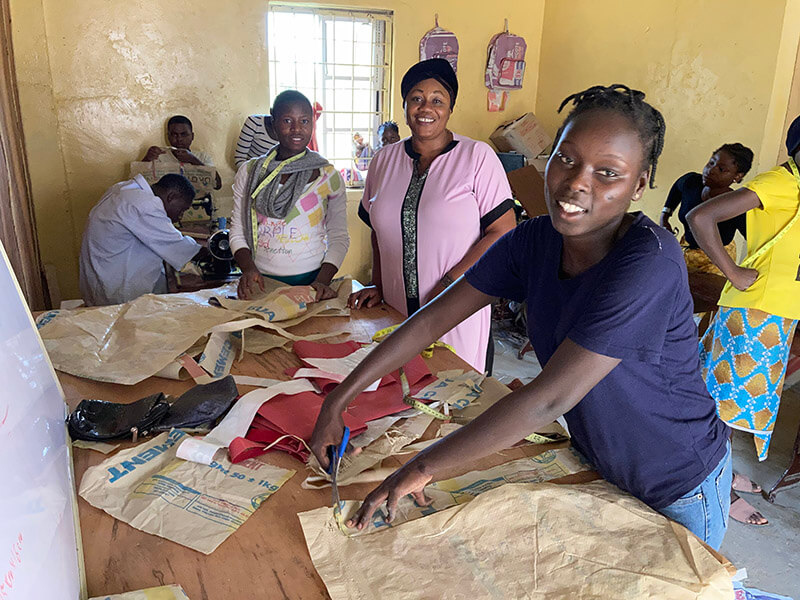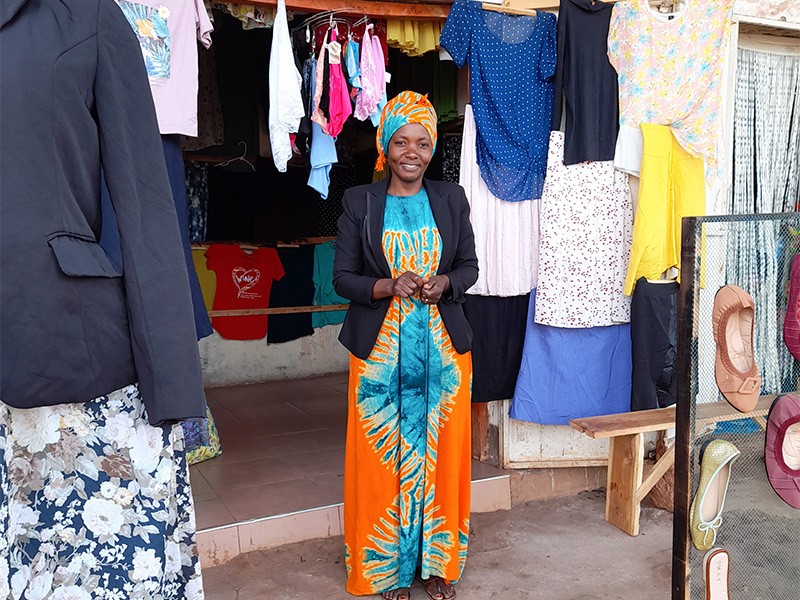A great need for practical, Bible-based teaching abounds in impoverished countries. Occupational training for youth is especially needed. Many people in our world have not grown up learning trades and skills.
SALT Vocational Schools in Bangladesh, Ghana, Nigeria, and Uganda seek to respond to this need. Students of these schools learn practical skills they can use to earn an income and work their way out of poverty.
In most cases, skilled indigenous Christians from the local area serve as the vocational instructors. These national instructors already understand the students’ culture and worldview, helping them teach more effectively. Anabaptist SALT managers are typically behind the scenes and focus on investing in the national staff to ensure spiritual vibrancy and quality, effective teaching.
In this update, we will highlight vocational schools in Bangladesh and Nigeria.
Nigeria
At Living Hope Vocational School in Nigeria, Mrs. Helen Yakubu is the instructor of a class that makes purses and handbags. She appreciates the opportunity to develop strong relationships with her eight students who are orphans or victims of terrorism and violence.
Seventeen-year-old Patience (pictured) is one of these students. She lived in a Christian village until it was destroyed by Boko Haram, an Islamic terrorist group. Patience enjoys reading and dreams of her vocational education becoming a business that can support her family.
Bangladesh
In Bangladesh, ten small vocational teaching centers operate with 322 women and 41 men enrolled. We do not have space for all who apply. To limit enrollment, at least 70 percent of students must be from families who are active SALT Savings Group members.
Two vocational subjects are taught in these centers:
- Sewing, tailoring, and pattern cutting
- Basic computer skills including repair, typing, and Microsoft Word/Excel
Each group of students attends classes three days a week, allowing two groups to receive training simultaneously. To ensure that each student receives sufficient practical instruction, no more than three students per computer or six students per sewing machine are permitted. In addition to practical and theoretical training, daily Biblical teaching is provided from the SALT manuals.
Upon successfully completing the course, students receive a certificate of completion, which can be helpful in getting a job or showing their customers that they have received training.
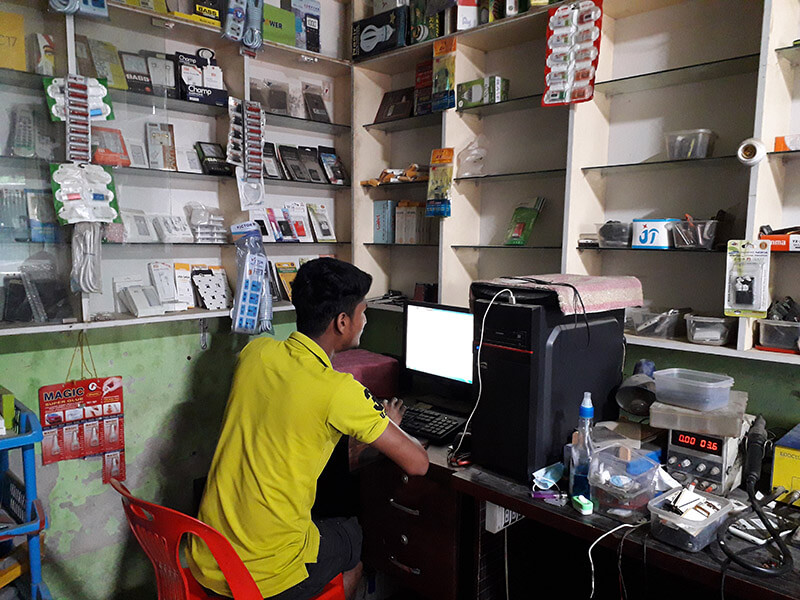
Aurop* (pictured) is eighteen years old and lives in rural Bangladesh with his poverty-stricken family. He completed high school and began looking for an opportunity to help meet his family’s needs. After graduating from SALT’s vocational computer course, Aurop was able to get a job as an assistant at a local computer shop, earning $1.75 a day. He gives his earnings to his parents, who use it to pay his younger sister’s tuition fees.
Savings groups and vocational schools complement each other well. For example, when vocational students graduate, they often start small businesses and need funds to purchase equipment. Weekly savings group meetings allow members to save money for future known expenses, take small loans from their accumulated savings, receive Bible-based teaching, and develop stronger community relationships. SALT’s goal is to operate vocational schools in areas with established savings groups to help needy families toward long-term sustainability.
*Name changed to protect identity.
